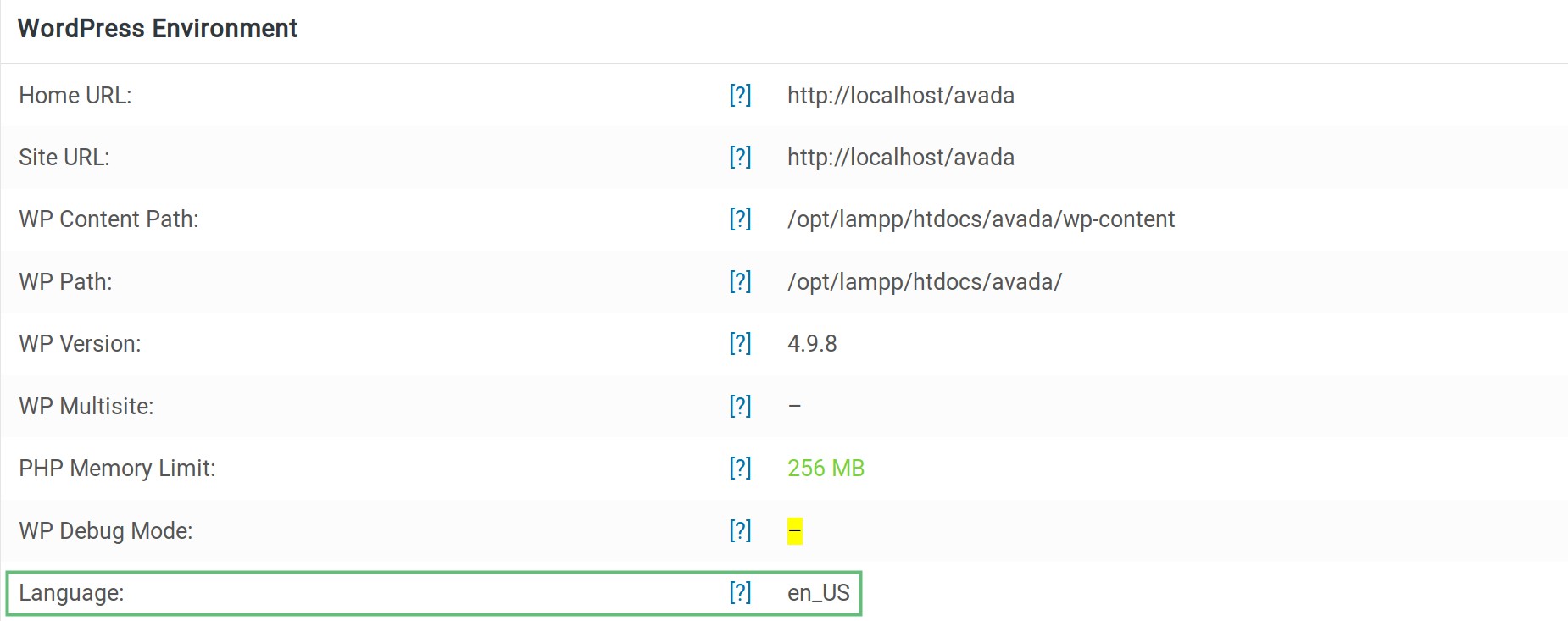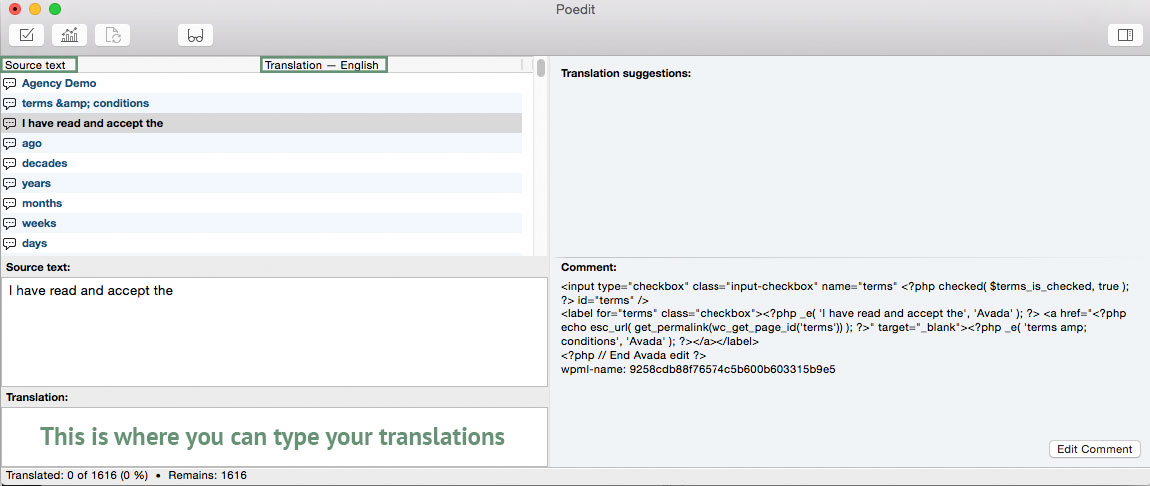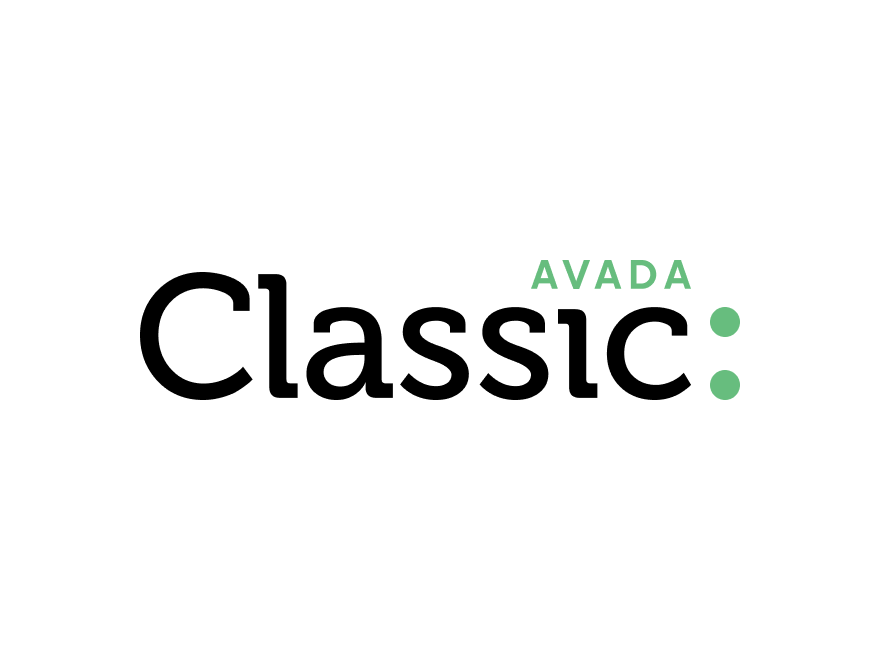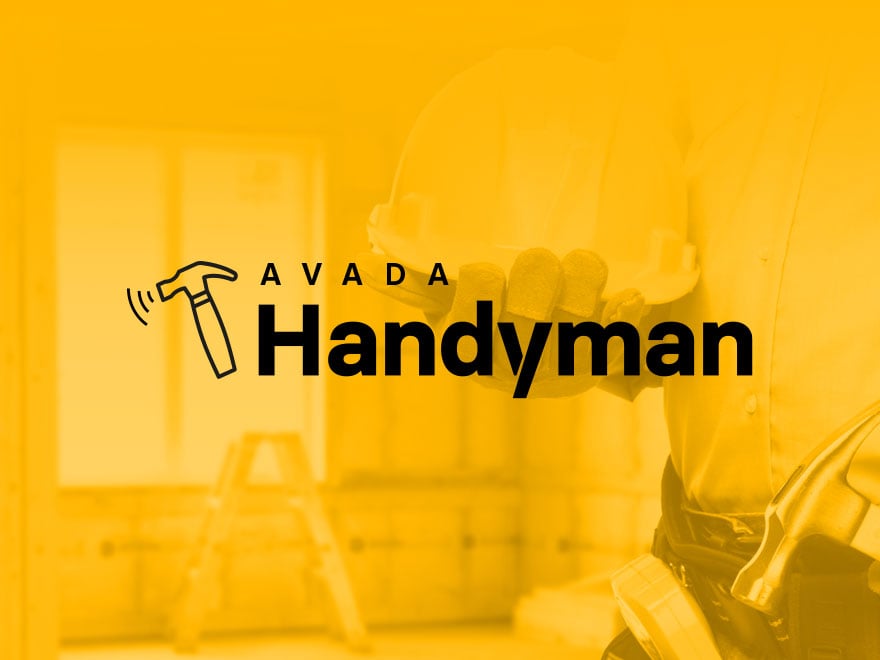Translating Avada
Last Update: July 23, 2024
Within this section, you’ll find everything you need to localize and internationalize Avada into your language. It is split into several subsections to help you easily find what you need. The Avada Website Builder and the Avada Builder and Avada Core plugins, that are bundled with Avada, are translated separately. Let’s take a look at translating Avada first.
Translatable Avada Features
Avada Translation Basics
This section will explain where you can find the files needed for translation and what these files are for. Avada comes with a steadily growing number of available languages, which can be downloaded from our public GitHub Repo. These are pre-defined translations, powered by our user base. You can see usage details here: Included Language Files
If your language is not already part of our repository, you can easily create your own translation files. Inside the Avada main folder, you will find a folder called languages. If you have downloaded the Installable WordPress Package file, you will find this file in the languages folder:
This file can be used as a starting point to create your own translations, using e.g. a third party tool like POEdit.
In order for WordPress to recognize the resulting language files, you must name them accordingly using the ISO Language Codes. For example, if you wanted to translate Avada to the Deutsch language, the filenames would be Avada-de_DE.po and Avada-de_DE.mo. View screenshot here.
Please see the next sections for detailed instructions on how to do so.
Language Code
Using the correct language code is an important factor to successfully translating Avada. If you are using Avada 3.8 or higher, we have added a System Status tab where you can easily see which language code you’re using. Please continue reading below for more information on how this is done.
How To Identify The Language Code You’re Using
Step 1 – Go to the Avada > System Status tab.
Step 2 – Under the WordPress Environment section, you will find a field called Language. the code located in this field is your language code. For example, en_US.
The Translation Process
If your language is not already included, the only thing you have to do is to create a new .po file from the original Avada.pot located in the languages folder, translate all text strings, then save the .po file with your language code and make sure the corresponding .mo is created, which can be read by WordPress. The next subsection will explain this in detail. If you only want to change translated strings in an included .po file, the same steps apply.
Either you are setting up a completely new language file or you just want to edit translated prebuilt language files, the steps to take are easy and more or less the same.
The language files can also be used if you only want to translate a small portion of the theme, or one specific area. You do not have to translate everything, you can choose what you translate inside the Avada.po file. This is the preferred method for translation.
How To Edit The .po file With 3rd Party Software
There are different editors out there for the purpose of editing .po and .pot files, but POEdit is easy to use, it is available for all platforms and it is freeware. To download POEdit, follow this link.
How To Start A New Language From Scratch
Step 1 – Open the Avada.pot in POEdit by selecting ‘New from POT/PO file…’. Once it has loaded, you will find all English text strings in the left column called Source Text. Once you add translations, they will show up in the right column under Translation.
Step 2 – Choose the line you want to translate. In the lower right section of the POEdit window, you will find a text area where you can add the correct translation.
Step 3 – When you are done translating all the needed text strings into your desired language, save the file with the theme name and your language code. For example, if you were translating to the Deutsch language, you would save it as Avada-de_DE.po. The corresponding .mo file will be auto created.
How To Edit A Pre-Built Language File
Step 1 – Open the .po file of your preferred language in POEdit and search for the line you want to change. To do this, select the Edit button, then select the Find option. View screenshot here.
Step 2 – In the Search Window, type the text string you are looking for. Once it is selected, replace the text in the Translation text area in the lower part of the window with your prefered translation.
Step 3 – If you’d like to edit another text string, just repeat Steps 1 to 2.
Step 4 – Once you’re happy with your translations, Save the file. The updated .mo file will be auto created.


















































































































